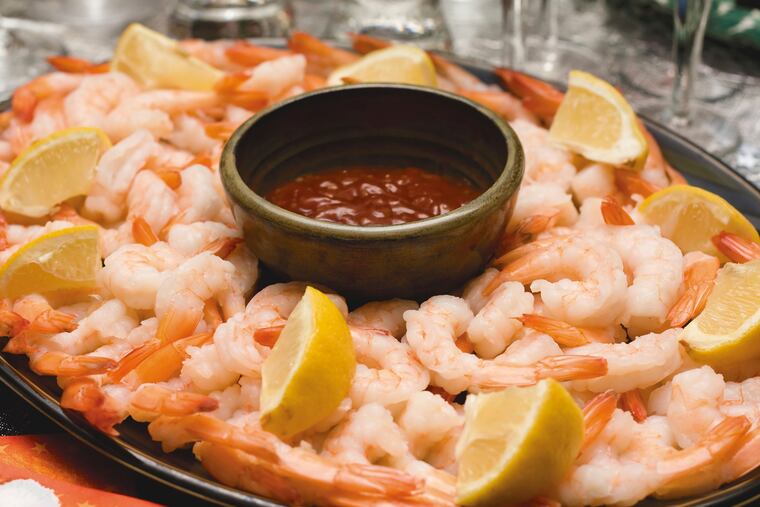Bad recipe for seafood
As Americans dip their shrimp in cocktail sauce at New Year's Eve parties tonight, they should consider a recent report that made some people gag. Much of the shrimp on holiday trays this season was processed by slaves and indentured servants in Thailand before being imported to the United States.

As Americans dip their shrimp in cocktail sauce at New Year's Eve parties tonight, they should consider a recent report that made some people gag. Much of the shrimp on holiday trays this season was processed by slaves and indentured servants in Thailand before being imported to the United States.
In an exhaustive investigation that included interviews with more than 300 former seafood industry workers, the Associated Press documented that slaves were sold, kidnapped, and conned into servitude while the Thai government blithely looked the other way.
When workers tried to leave seafood companies, they were beaten, chained to boat decks without food or water for days, and in some cases thrown overboard. They worked for months at a time on boats described as "floating prisons," or on land where they stood 16 hours a day, peeling and deveining shrimp with their hands in icy water. Scratches and sores often became infected with bacteria.
The AP found that America's appetite for inexpensive shrimp has led U.S. food companies such as Red Lobster and Olive Garden restaurants, Walmart and Whole Foods grocers, and Petco, which sells pet food with shrimp in it, to disregard how merchandise is processed.
Representatives for the companies assured the Associated Press that they weren't selling slave-processed shrimp. But suppliers of the stores and restaurants said they couldn't guarantee that slave labor wasn't used in the products' processing. Some of the same suppliers vowed not to ship slave products when confronted with earlier allegations.
They can do better. Nestle, a Swiss company, conducted its own investigation this year and determined which of its suppliers were possibly using slave labor. Walmart, Red Lobster, and other big American companies need to stop making excuses for not finding out the sources of the shrimp they sell and how it was processed.
It's difficult for consumers to be discerning because there are no clues on restaurant menus and store packaging as to how shrimp was processed. Many Americans would be willing to pay more for shrimp if they could be sure it wasn't processed by slave labor. New farming techniques are also making domestic shrimp a more viable option.
It would help if U.S. laws making it illegal to import goods produced by slave labor were more actively enforced. And a giant loophole in those laws, which exempts products when U.S. production can't keep up with demand, needs to be closed.
The sad tale of Thailand's shrimp industry provides an opportunity for this country to stand by principles it fought over during the Civil War and promoted in creating one of the world's most vigorous labor movements: Workers should not be slaves.